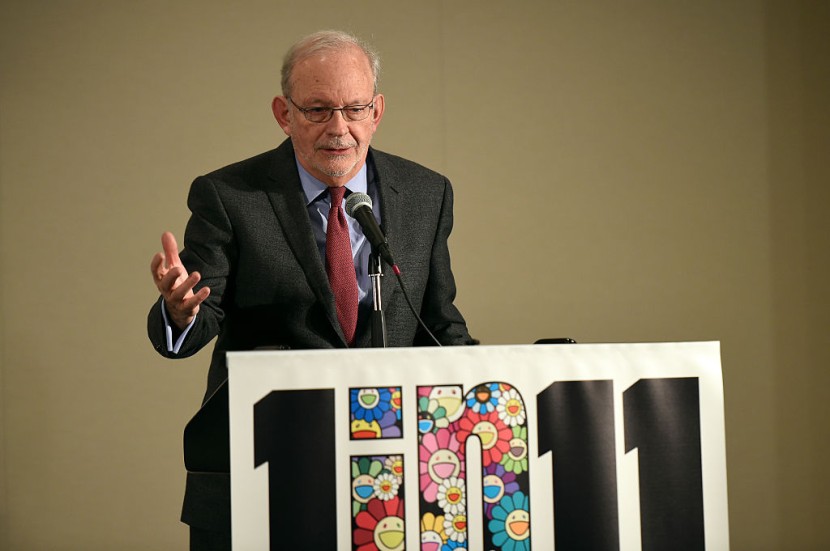
In a startling turn, the Speaker of Canada's House of Commons, Anthony Rota, issued a public apology on Sunday for recognizing a 98-year-old man who had fought for a Nazi military unit during World War II.
The incident occurred during Ukrainian President Volodymyr Zelensky's address in the House of Commons, as per The Washington Post.
Canadian Speaker Apologizes for Recognizing WWII Veteran
Canadian lawmakers gave Yaroslav Hunka a standing ovation, mistakenly introduced as a war hero who fought for the First Ukrainian Division. Rota's introduction of Hunka included the statement that he had fought against the Russians in World War II.
However, Speaker Rota later regretted his decision, citing newly acquired information that led to his change of heart. He acknowledged that his fellow Parliament members and the Ukrainian delegation were unaware of his plan to recognize Hunka, who hails from Rota's district.
In his formal apology, Speaker Rota extended his deepest apologies to Jewish communities in Canada and worldwide. He took full responsibility for his actions and expressed remorse, stating, "I accept full responsibility for my action."
Hunka, the subject of the controversy, has not yet commented on the matter. During Zelensky's visit to Ottawa to seek support from Western allies for Ukraine's struggle against the Russian invasion, Canadian lawmakers cheered while Hunka received two separate standing ovations.
Speaker Rota described him as a "Ukrainian hero and a Canadian hero" and thanked him for his service. However, this unexpected recognition of Yaroslav Hunka has raised significant concerns and sparked outrage among various organizations and individuals.
Vladimir Putin has repeatedly labeled his adversaries in Ukraine as "neo-Nazis," despite President Zelenskyy being Jewish and losing relatives in the Holocaust. The First Ukrainian Division, in which Hunka fought, is also known as the Waffen-SS Galicia Division or the SS 14th Waffen Division. It was a voluntary unit under the command of the Nazis during World War II.
The Friends of Simon Wiesenthal Center for Holocaust Studies issued a statement on Sunday condemning the division's actions, emphasizing that it "was responsible for the mass murder of innocent civilians with a level of brutality and malice that is unimaginable."
They demanded an apology to Holocaust survivors and WWII veterans who fought against the Nazis. B'nai Brith Canada's CEO, Michael Mostyn, expressed his outrage, highlighting that Ukrainian "ultra-nationalist ideologues" who volunteered for the Galicia Division promoted an ethnically homogenous Ukrainian state and endorsed ethnic cleansing.
He called for a meaningful apology from Parliament and a thorough explanation of how Hunka was allowed to enter the Canadian Parliament and receive recognition, according to CBS News.
Cross-Party Applause for Hunka Raises Questions, Demands for Explanation
Members of Parliament from various political parties applauded Hunka during the incident, with some expressing their shock and lack of awareness about his history. Sebastian Skamski, a spokesperson for the Conservative party, stated that the reports of Hunka's history were troubling, and Trudeau's Liberal party would need to explain why he was invited.
Karina Gould, leader of the government in the House of Commons, also expressed her concern on social media, emphasizing that she had no additional information beyond what Speaker Rota provided. She clarified that the government played no role in inviting Hunka, and the Prime Minister did not meet him.
She urged MPs not to politicize the incident but acknowledged her deep distress. The recognition of Yaroslav Hunka, a former member of a Nazi unit, in the Canadian Parliament has led to widespread outrage and calls for a meaningful apology and explanation.
This incident has raised important questions about how such recognition could occur in the heart of Canadian democracy and has ignited a broader conversation about acknowledging and addressing historical atrocities, The Guardian reported.
Related Article : UAW's Next Step is the 'More Nuclear Option,' Claims Top Analyst
© 2026 HNGN, All rights reserved. Do not reproduce without permission.








